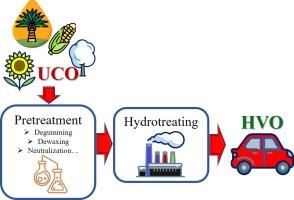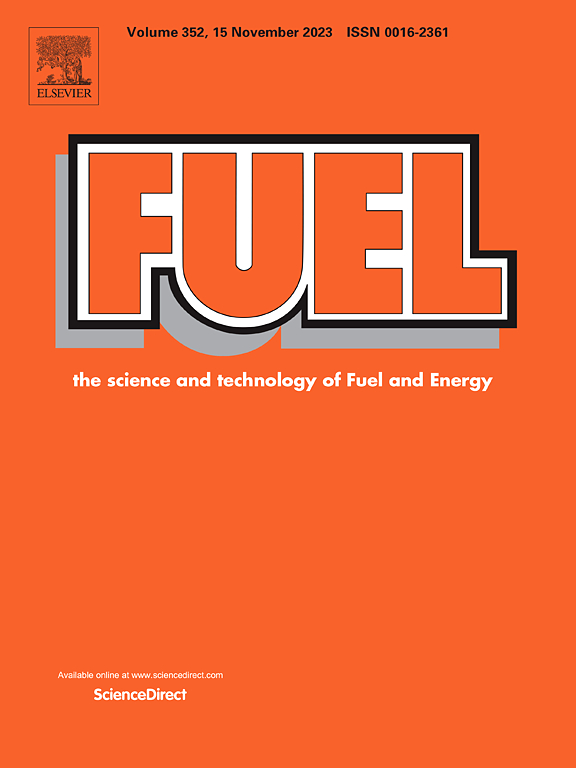Approaches to conditioning of vegetable oil feedstock for hydrotreating to produce renewable diesel
IF 6.7
1区 工程技术
Q2 ENERGY & FUELS
引用次数: 0
Abstract
The hydrotreating (HDT) process is increasingly implemented due to its versatility in producing renewable diesel and its flexibility with various raw materials. Impurities in vegetable oils can disrupt the HDT process, necessitating a pretreatment stage to ensure optimal performance, catalyst and equipment preservation, and achieve high yields. While laboratory-scale studies often overlook pretreatment due to minimal impacts on production costs and the use of pre-refined oils, industrial processes are designed and tailored to optimize the purification step for efficiency and cost-effectiveness. This study discusses the effect of impurities such as phospholipids, metals, and free fatty acids (FFA) on HDT and outlines effective pretreatment methods. Removing impurities is critical as they can deactivate sulfur-based catalysts, promote coke formation, and initiate oligomerization. The introduction of dimethyl disulfide (DMDS) and co-processing with sulfur-containing petroleum fractions are examined for their effectiveness in mitigating catalyst deactivation. The two-stage HDT, or pre-HDT, which is emphasized for lowering coke formation and increasing hydrogen availability, is also covered. The study emphasizes the importance of tailored pretreatment strategies for different raw material, including used cooking oil (UCO), to enhance HDT efficiency and extend catalyst life.

求助全文
约1分钟内获得全文
求助全文
来源期刊

Fuel
工程技术-工程:化工
CiteScore
12.80
自引率
20.30%
发文量
3506
审稿时长
64 days
期刊介绍:
The exploration of energy sources remains a critical matter of study. For the past nine decades, fuel has consistently held the forefront in primary research efforts within the field of energy science. This area of investigation encompasses a wide range of subjects, with a particular emphasis on emerging concerns like environmental factors and pollution.
 求助内容:
求助内容: 应助结果提醒方式:
应助结果提醒方式:


